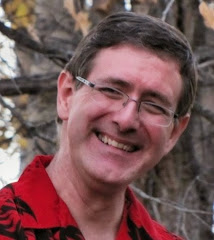(Photo: A Mennonite, a Catholic and a United Church minister finishing a
jigsaw puzzle together, 2023)
C. S.
Lewis once said that the hardest person to love other than ourselves, is the
person sitting beside us in the pew.
They drop their hymnbooks, they pick their teeth, or they drip mud on
the carpet. It’s easy to proclaim love
in the abstract for people we will never meet, or in a foreign country far away. It’s another thing to love the people next to
us.
There’s
a United Church who was designing a new building. The congregation became fiercely split
between those who thought that it was an important way of telling the community
that they were a church, and those who thought a steeple was a sign of patriarchal,
hierarchical oppression. The ones who
thought a steeple was a necessity couldn’t agree on whether a cross should be
on the building. Was it a sign of
state-sanctioned torture or was it a beloved symbol of hope and
encouragement? Other congregations have
split over the color of carpets, pews vs chairs, (and by the way, pews are a
relatively new invention developed about 800 years ago and not really spread
far until protestants decided they wanted to sit down for the sermon), sung music versus
instrumental music, never mind how we do communion and baptism.
But,
and this is a sad but, we are not known for our unity and love, but for our
diversity and judgmental arguments.
There are denominations that will not talk to each other, and just
because someone was baptised in one church, doesn’t mean that they will be
accepted in another church. There are
incidents where young people have made plans to get married only to be told by
their priest or pastor that they aren’t Christian enough or acceptable enough. It gives us Christians a really bad name.
In
2012 I went to the fastest growing church in Canada. It was growing so fast that the pastor got on
the cover of MacLean’s Magazine. They had four greeters at the door, and four
ushers to help people find their seats. The place was full, the service was slick,
with slides for all the hymns and not a hymnbook in sight, a praise band that
got everyone full of emotion with songs that lasted 7 or more minutes each. People spoke in tongues, accepting Jesus as
their savior and getting the pastor to lay healing hands on them. The sermon was a riveting, dramatic 30-minute
reenactment of David’s friend Jonathan sneaking up on the dreaded Philistines
with only his trusty servant beside him. Now there’s a passage that doesn’t get
preached on very often, but the pastor hammed it up and made it unforgettable.
The whole service was closer to two hours and there was even someone in the
back of the sanctuary burning cds of the worship service and selling them as people
left.
The
next week we went to a Quaker service where there was no music, no organ, no
guitar, just silence. In that service,
the first half hour was for complete and utter silence where all that could be
heard was the breathing of the person sitting beside you. 30 minutes of nothing but our own
thoughts. Then the next half hour was
people sharing what came up for them in their prayers. They didn’t like it when students came to
worship wearing shoes with shiny sequins on them as that was a sign of not
living a simple and humble life. That
too was a sermon that was never forgotten, and it was maybe two sentences
long. When everyone had said what had
come to their hearts, they said the Lord’s prayer together and then had coffee
time.
This
kind of diversity and division among Christians is confusing to outsiders. They don’t understand why there is so much
division among people who were commanded to love one another. It is one more reason for modern, cynical
atheists to roll their eyes and dismiss our faith. Much damage has been done to the Christian
witness by folks trying to prove that their interpretation is right and better
than others. And when they mixed
politics with judgmental righteousness, a lot of people got hurt, wars got
started and trauma was inflicted on generations of people. All because we forgot that Jesus taught us to
love one another with a sacrificial love that was deep, bold and daring.
We
forgot to hold close to the source of Love, Jesus, and God. We forgot to pray for help in loving our
neighbors. We forgot that we are all
made in God’s own image which means some of us need silence, some of us need
loud enthusiasm, and some of us need something in between. It’s okay to recognize that we have different
ways to connect to God. An abundance of
ways to practice loving God.
The
challenge for us, as it has been for Christians for centuries, is remembering
that we are not doing this by ourselves.
We do not have to love perfectly for God’s love to be perfected in us. And we can ask if our feelings towards our
neighbors are coming from fear or love.
Fear gets us acting like dinosaurs, doing the classic fight, flight or
freeze reactions. Fear breaks churches
down. Fear withers us, like a dead vine
branch. We do not thrive on fear, we are
not resilient on fear. We do not grow or
produce fruit when we are connected to fear.
When we remind ourselves to root ourselves in compassion and prayer, and
support each other in love, our Christian witness is strengthened, and God will
strengthen us to bear much fruit.
What
an amazing witness we would be if we found ways to help each other be less
fearful and more loving. If we could
look for ways we are united instead of different. If we could look beyond my
needs to our thriving. And
from my troubles to helping the world be a more resilient, loving
place. When we work together in love,
God works in us to love the world too, and the world needs our unifying love
now more than ever.
May we
find the courage to love one another as we have been loved. Amen.







